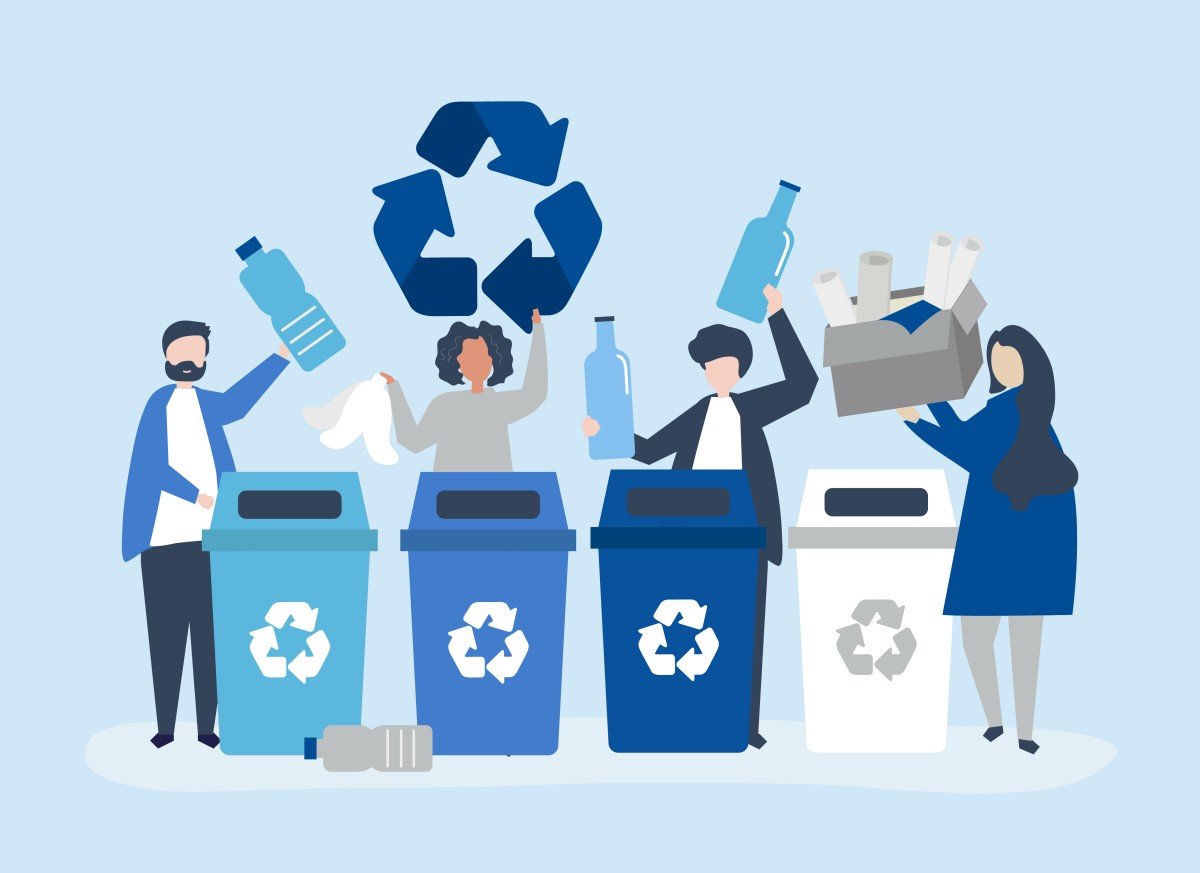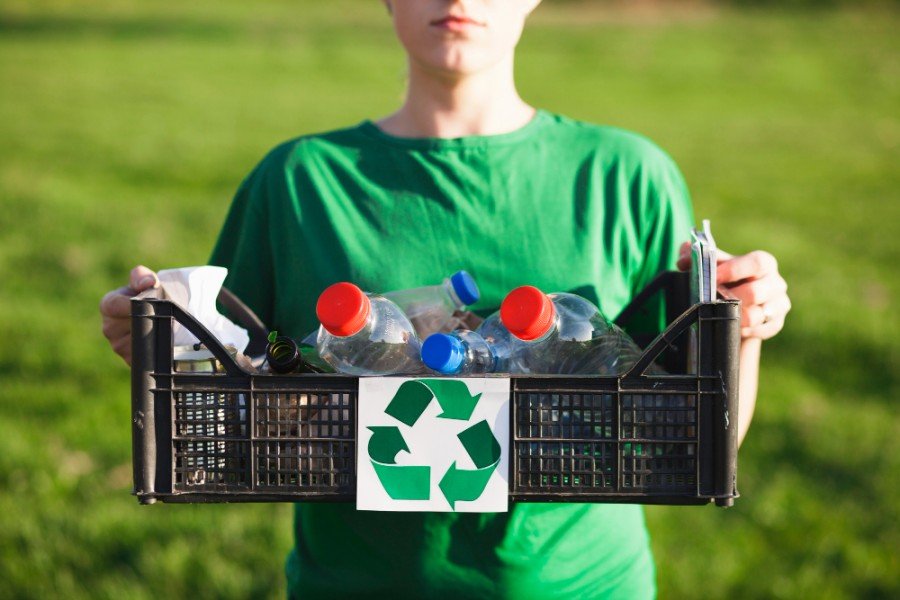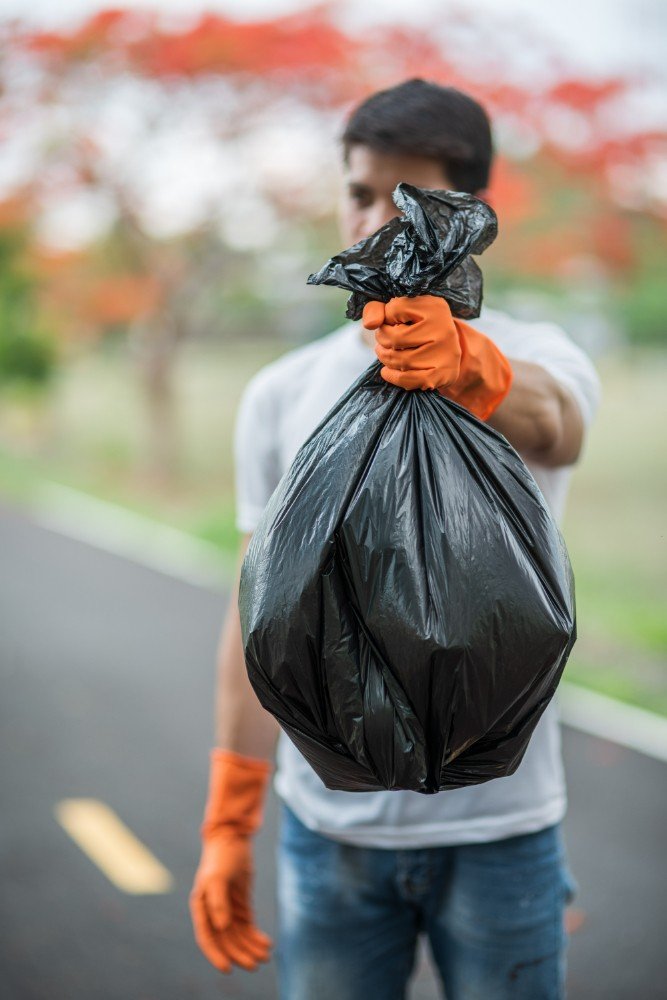Solid waste management is a crucial issue that impacts both urban and rural regions throughout the globe. As populations continue to grow, so does the extent of waste generated, which leads to serious environmental and health issues.
Effective solid waste control is critical for preserving public health, maintaining natural sources, and minimising environmental pollution.
In this blog, we’ll explore the best practices of solid waste management, and the 3 R’s rule (Reduce, Reuse, Recycle) with an in-depth study of solid waste management in Kerala.
Understanding Solid Waste Management

Solid waste management involves the systematic control of the technology, storage, collection, delivery, processing, and disposal of solid waste in a manner that excellently addresses public fitness, environmental considerations, and resource healing.
It features a huge variety of practices geared toward lowering the negative impacts of waste on the environment.
The Importance of Solid Waste Management
Powerful solid waste management is crucial for numerous reasons:
- Public Health: Proper waste management prevents the spread of illnesses by controlling waste that may function as breeding grounds for pests and pathogens.
- Environmental Protection: Reducing waste and improving garbage disposal techniques allows for shielding land, water, and air from pollution.
- Resource Conservation: Through recycling and reuse, treasured substances may be recovered, lowering the need for raw substances and protecting natural sources.
Eco-friendly Practices in Solid Waste Management

1. Recycling and Reuse
Recycling and reuse are cornerstones of sustainable solid waste management. By diverting waste from landfills and incinerators, those practices help reduce pollution, conserve sources, and decrease greenhouse gas emissions.
- Recycling: Recycling includes processing used substances into new merchandise. Commonly recycled substances include paper, glass, metals, and plastics. According to the EPA, recycling one ton of paper can keep 17 trees and 7,000 gallons of water.
- Reuse: Reuse entails locating new uses for objects that might otherwise be discarded. This can vary from repurposing old furniture to donating clothes. The practice of reuse reduces the want for brand spanking new products, for this reason protecting sources and power.
2. Waste Reduction
Waste reduction, regularly known as source reduction, involves strategies to minimise the amount of waste generated. This is the best manner to manipulate waste, because it prevents waste from being created inside the first place.
- Design for Environment (DfE): DfE is a technique wherein products are designed to decrease their environmental effect throughout their life cycle. This consists of decreasing the quantity of cloth utilised in merchandise, designing for sturdiness, and making products simpler to recycle.
- Consumer Awareness: Educating customers approximately the environmental effect in their purchases and inspiring them to pick out merchandise with minimal packaging or those made from recycled materials is crucial. Studies display that consumer behaviour extensively influences waste technology.
3. Composing: Nature’s Recycling
Waste composing is the procedure of breaking down natural waste, along with food scraps and backyard waste, into nutrient-rich soil. This not only reduces the quantity of waste despatched to landfills but also produces precious compost that may be used to enhance soil.
- Benefits of Composting: Composting reduces methane emissions from landfills, a mighty greenhouse gas, and enhances soil health via including organic depend. According to the Composting Council, composting can lessen the need for chemical fertilisers, enhance soil shape, and promote healthful plant increase.
- Vermicomposting: Vermicomposting is a type of waste composing that uses worms to interrupt down organic fabric. This technique is particularly effective in city settings in which area for conventional composting is probably restrained.
4. The 3 R’s Rule: Reduce, Reuse, Recycle
The 3 R’s rule—Reduce, Reuse, Recycle—is an easy yet powerful principle for managing waste. It prioritises waste reduction, accompanied through reuse and recycling, to reduce the quantity of waste that ends up in landfills.
- Reduce: The only manner to control waste is to no longer create it in the first location. This includes lowering the amount of waste generated via selecting merchandise which have minimal packaging, are long lasting, and have longer life spans.
- Reuse: Finding new uses for objects that would otherwise be discarded enables reducing the call for new products and minimises waste.
- Recycle: Recycling allows turning waste into valuable sources, decreasing the need for uncooked materials and preserving strength.
5. Sustainable Garbage Disposal Practices
Garbage disposal strategies have a tremendous impact on the surroundings. Traditional techniques like landfilling and incineration contribute to environmental pollution and resource depletion.
However, eco-friendly disposal practices can mitigate these effects.
- Sanitary Landfills: Unlike conventional landfills, sanitary landfills are designed to minimise environmental harm. They are lined with shielding limitations to prevent leachate from contaminating groundwater and are included often to reduce odours and pests.
- Waste-to-Energy (WTE): WTE vegetation converts non-recyclable waste into energy, commonly within the form of power or heat. This approach reduces the extent of waste despatched to landfills and presents a renewable strength supply.
Case Study: Solid Waste Management in Kerala
With a high population density and fast urbanisation, Kerala faces tremendous solid waste management demanding situations.
However, the state has carried out several successful techniques to address these demanding situations.
- Decentralised Waste Management: Kerala has followed a decentralised approach to waste management, where waste is managed on the supply, reducing the load on centralised facilities. This includes promoting family-degree composting and encouraging community-based totally waste control projects.
- The ‘Suchitwa Mission’: Suchitwa mission focuses on waste segregation at the source, waste composting, and the reduction of plastic waste. As a result, many neighbourhood governments in Kerala have banned single-use plastics and carried out effective waste collection and recycling packages.
- The Role of Local Communities: Community participation plays a critical position in Kerala’s waste control achievement. Local self-government, our bodies, NGOs, and network agencies paint together to enforce waste control strategies, train the public, and ensure compliance with waste control legal guidelines.
Conclusion: Moving Towards a Greener Future
Eco-pleasant approaches to solid waste control are essential for lowering environmental pollutants, protecting assets, and promoting public health. By adopting practices like recycling, composting, and waste reduction, and adhering to the 3 R’s rule, we will significantly reduce the harmful impacts of waste on the environment.
By making aware selections in our everyday lives and supporting guidelines that promote green waste management practices, we can collectively create a cleaner, healthier, and more sustainable world.


